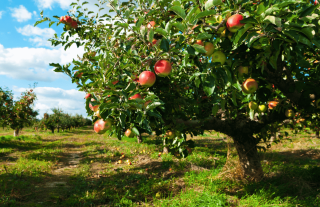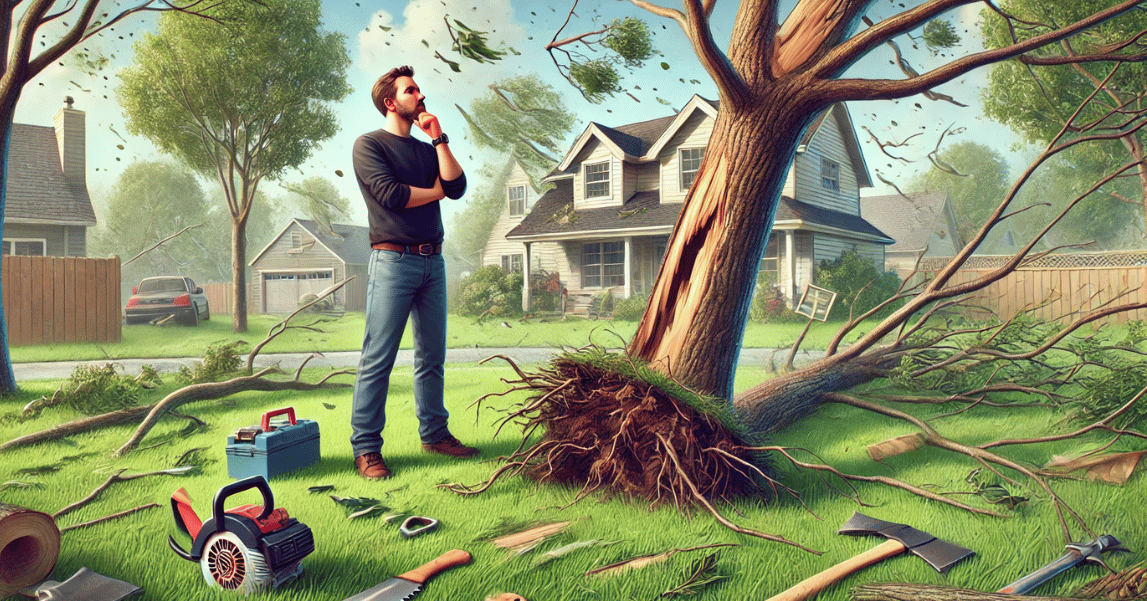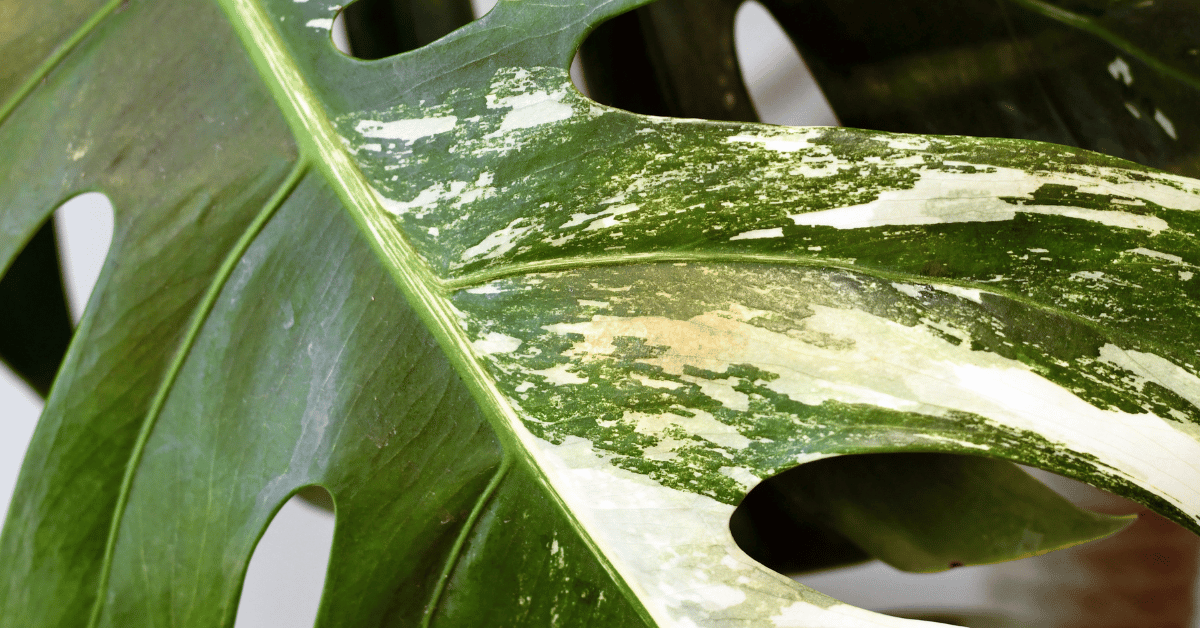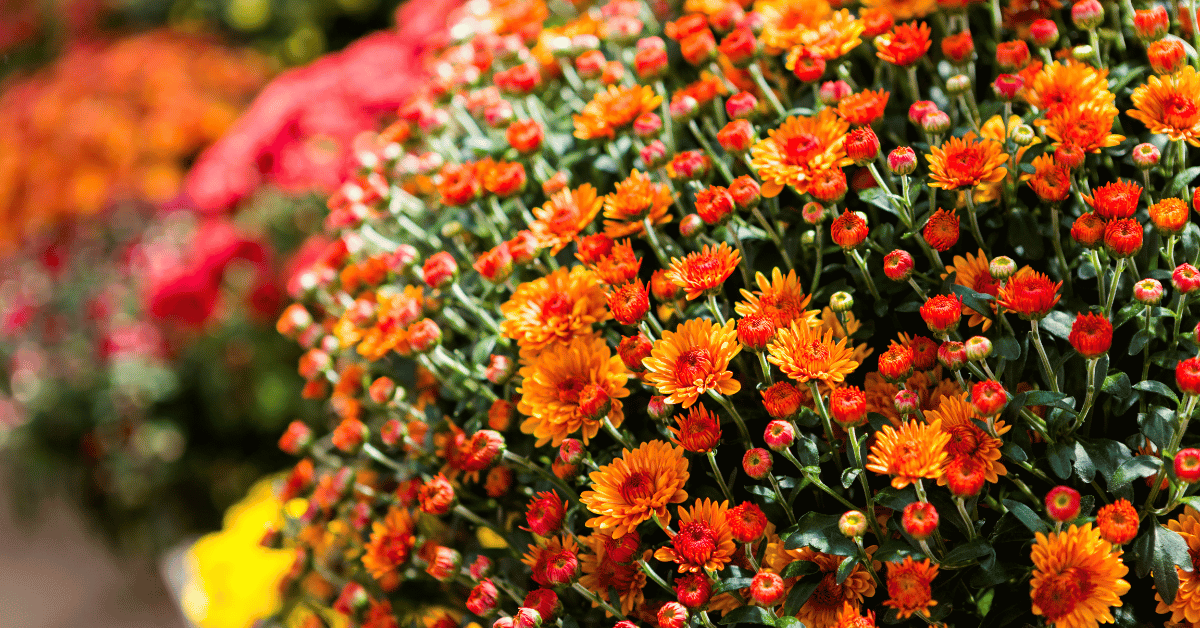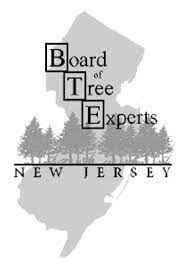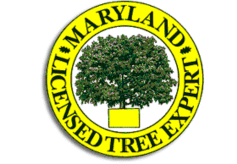With their delicate blossoms and delicious fruits, Apple trees add beauty and flavor to any garden. However, proper care is essential to ensure their optimal health and productivity. One crucial aspect of apple tree care is fertilization. In this guide, Strobert Tree Services will walk you through the best practices for fertilizing apple trees, from the ideal timing to the most suitable fertilizers.
How to Fertilize Apple Trees
Fertilizing apple trees is more than just a one-size-fits-all task. Different trees have distinct needs based on age, soil quality, and climate. Here's a step-by-step guide to help you fertilize your apple trees effectively:
1. Assess Soil Nutrients:
Before applying any fertilizer, it's crucial to understand your soil's nutrient composition. Conduct a soil test to determine nitrogen, phosphorus, and potassium levels – the primary nutrients essential for apple tree growth. This information will guide you in selecting the right fertilizer blend.
2. Choose the Right Fertilizer:
Apple trees typically benefit from a balanced fertilizer with a ratio of nitrogen (N), phosphorus (P), and potassium (K). Look for a fertilizer with an N-P-K ratio of 10-10-10 or a similar balanced formulation. Organic options like compost or well-rotted manure can also provide valuable nutrients.
3. Apply Fertilizer at the Drip Line:
The drip line is the outer edge of the tree's canopy. This is where the majority of the feeder roots are located. Spread the fertilizer evenly around the drip line, avoiding direct contact with the tree trunk. Use a broadcast spreader for even distribution.
4. Water Thoroughly:
After applying the fertilizer, water the area thoroughly. This helps the nutrients penetrate the soil and reach the tree's roots. Aim for deep watering to encourage the roots to grow deeper into the soil, making the tree more resilient.
5. Mulch Around the Tree:
Mulching helps conserve soil moisture, suppress weeds, and regulate soil temperature. Apply a layer of organic mulch around the tree's base, such as wood chips or straw, but avoid piling it against the trunk.
Best Time to Fertilize Apple Trees
Timing is crucial when it comes to fertilizing apple trees. Applying fertilizer at the right time ensures the tree can absorb and utilize nutrients efficiently. Here are some key considerations:
1. Early Spring:
The best time to fertilize apple trees is early spring, just as the buds swell. Applying fertilizer now provides the necessary nutrients for the tree's initial growth spurt as it emerges from winter dormancy.
2. Late Fall:
In addition to spring, late fall is another suitable time to fertilize apple trees. Applying fertilizer in late fall allows the tree to absorb nutrients during the dormant season, preparing it for robust growth in the coming spring.
Best Fertilizer for Apple Trees
Choosing the right fertilizer is essential for the health and productivity of your apple trees. Here are some recommendations:
1. Granular Complete Fertilizer:
A granular complete fertilizer with an N-P-K ratio of 10-10-10 or similar is suitable for apple trees. This fertilizer provides a balanced mix of essential nutrients for overall tree health.
2. Organic Options:
Organic fertilizers, such as compost or well-rotted manure, are excellent choices for those looking to take a more natural approach. These organic materials release nutrients slowly, promoting long-term soil health.
3. Slow-Release Fertilizer:
Slow-release fertilizers offer a gradual release of nutrients over an extended period. This helps maintain a steady supply of nutrients for the tree, reducing the risk of over-fertilization.
Apple Tree Fertilizing Tips
To ensure the success of your apple tree fertilization efforts, consider these additional tips:
1. Avoid Over-Fertilizing:
While fertilizing is essential, overdoing it can harm the tree. Follow the recommended application rates and avoid applying fertilizer too close to the trunk.
2. Monitor Tree Growth:
Regularly inspect your apple trees for signs of nutrient deficiencies or excesses. Adjust your fertilization routine based on the tree's response and any soil test results.
3. Prune Wisely:
Pruning is another critical aspect of apple tree care. Proper pruning allows sunlight and air circulation, promoting healthy growth. Combine pruning with fertilization for optimal results.
Benefits of Hiring a Certified Arborist to Fertilize Apple Trees
While the avid gardener may take on the task of fertilizing apple trees, hiring a certified arborist can offer additional benefits:
1. Expertise and Experience:
Certified arborists have extensive knowledge and experience in tree care. They can assess your apple trees' needs and develop a customized fertilization plan.
2. Soil Analysis:
Arborists can conduct thorough soil analyses to determine the exact nutrient requirements of your apple trees. This precision ensures that suitable fertilizers and amounts are applied.
3. Disease and Pest Management:
Arborists are trained to identify and address potential disease and pest issues. Combining fertilization with pest management, they help protect your apple trees from various threats.
Contact Strobert Tree Services - Leaders in Tree Care in Delaware, Pennsylvania, Maryland, New Jersey
For those seeking professional tree care services, Strobert Tree Services stands out as a leader in the industry. With a team of certified arborists and a commitment to excellence, we offer comprehensive tree care solutions, including fertilization services for apple trees. Contact us today to ensure the health and vitality of your trees in Delaware, Pennsylvania, Maryland, and New Jersey.
Fertilizing apple trees is a fundamental aspect of their care, contributing to their overall health and productivity. Following the recommended practices and seeking professional assistance, you can enjoy a bountiful harvest of delicious apples from your thriving orchard.


